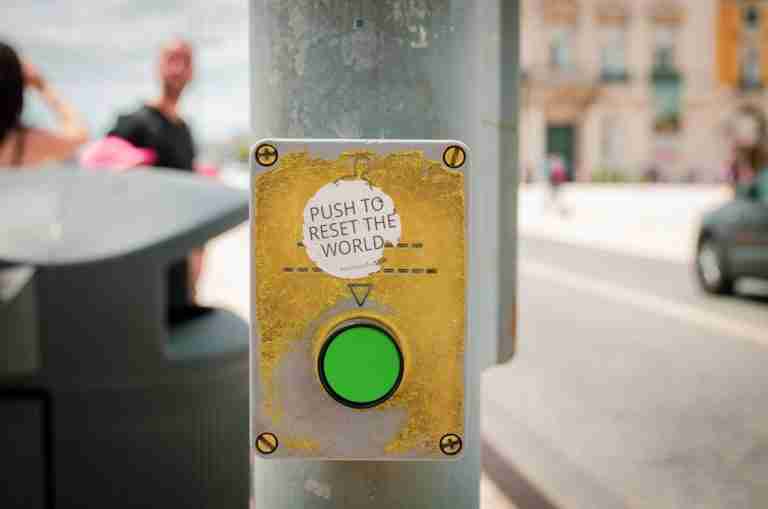How is your money mindset affecting you? Why your money mindset might be holding you back.
Your money mindset has a significant impact on your financial well-being. If you have a negative mindset, it can hold you back from reaching your financial goals. Understanding and addressing limiting beliefs and adopting a positive money mindset can empower you to make better financial decisions and achieve financial success.
Discovering where your money mindset comes from and whether it is helpful to you today will play a significant role in mastering your money.

What is a money mindset?
A money mindset is your prevailing attitude to money and your finances. This money mindset drives what you do with your money and how you think about money. More or less affecting every way you act and react to money in your life.
It’s the lens through which you make money decisions every day, and for better or worse, it can make your money management and achievement of your goals a blessing or a curse.
Common money mindsets
I know I have had a few of these, do you recognise any in yourself, friends or family?
- (The classic) Money can’t make you happy – maybe not but might be worth trying out to be sure
- Money is the route of all evil – slightly miss quoted as it should read “the love of money is the route of all evil”. But again, it depends on what you love money for.
- Money doesn’t grow on trees – well in the UK we know that the government does have a magic money tree and often shakes it very hard.
- We can’t afford it
- Everyone else is in debt / doing it
- “I’m not motivated by money” – that may be partially true, but I doubt you have asked your company not to pay you! Didn’t think so.
Common negative money mindsets
- I’ll never be good at money
- My debt will never be paid off
- I’ll never make as much money as…..Rita, Sue or Bob
- He, she, they are lucky and inherited all their wealth.
- You can’t get rich without cheating someone out of their money.
Mindsets that determine your approach to money
| Mindset | Description |
|---|---|
| Scarcity Mindset | Belief that there is limited money available, leading to fear, hoarding, and frugality. |
| Abundance Mindset | The belief that there is enough money for everyone, fostering generosity and opportunity-seeking. |
| Growth Mindset | A belief that financial knowledge and skills can be developed over time, encouraging learning and improvement. |
| Fixed Mindset | The belief that financial abilities and circumstances are fixed, leading to a lack of effort or exploration. |
| Victim Mindset | A belief that external forces control financial outcomes, leading to a sense of powerlessness and blame. |
| Empowered Mindset | Belief in personal responsibility and control over financial choices, leading to proactive actions and positive outcomes. |
| Risk-Averse Mindset | Tendency to avoid financial risks and prefer safer, low-risk investments and financial decisions. |
| Entrepreneurial Mindset | Belief in taking calculated risks and seeking opportunities to create wealth through business ventures. |
| Instant Gratification Mindset | Strong desire for immediate satisfaction, leading to impulsive spending and difficulty saving for the future. |
Where do you get a money mindset from?
Yep, its more or less your parent’s fault again. Well sort of. How they handled money, talked about money, and then imprinted that on you is likely were part of your mindset came from.
Whether your parents did or did not have a lot of money and subsequently how they managed this surplus or deficit will have imprinted a subliminal or explicit set of ideas in your mind.
This imprint might have resulted in you copying them or rebelling against them in your own behaviours or money management system (or lack of one).
The management of money or lack thereof will have leaked into everything that happened in your household. The constant arguments or tension around spending or the carefree go on treat yourself attitude.
- Were there conversations about what neighbours or friends were doing?
- Did you ever see your parents manage money, i.e. sitting down with a spreadsheet or bank statements?
- Were there conversations about not having the money to do this or that? And framed negatively?

Frenemies with their money mindsets
Your friends, of course, played their part. Most likely exhibiting traits of their parents and how they managed their money.
Whether it was easy come, easy go or held onto with an iron fist, i.e. the one that always disappeared when it was their round (I just needed the toilet at that exact moment honestly!).
When you were young, you likely more or less hung around people with similar economic backgrounds. Stark differences in income or wealth may not have been that apparent, yet.
However, now that you all have your own careers, it may be all too painful to see the city banker is not ordering water anymore with their lobster.
How TV affects your money mindset
Tv will have played a big part in your money mindset. My balanced view of money came from watching Dallas and Dynasty. No, more like Only Fools and Horses.
How you were exposed to rich and famous lifestyles without understanding how or if they were as wealthy as they looked may have skewed your thoughts on money.
Nowadays, celebrity culture means you can see the “lives” people are leading 24/7. But have no idea if or how they are earning or paying for what they do or have. Are they affording the interest payments, or is it all a mirage?
“You never know who’s swimming naked until the tide goes out
Warren Buffett
The above quote means someone can afford something while everything is going great, but one wobble and the whole thing comes tumbling down, exposing their bits for all to see—something like a lost job, an unexpected bill or a global pandemic, the usual stuff.
Social media and your money mindset
Being able to peer into nearly everyone’s public persona can also skew your money mindset and how you use your money.
Seeing the highlights of friends and family gives you little understanding of how someone afforded something or the timescale of the fantastic events. What is does do is make you look at your life and compare it against others.
Have you had as many luxury items, holidays makeovers as your friends appear to have had?
Have you also experienced their worries and concerns about how they will afford the payments or the things they can’t do because they are up to their neck in debt?
What do you read and why do you read it?
What you read can also significantly influence your view of the world and money’s place in it.
Are you reading lots of education books on philosophy, business or personal finance? Or are you swinging to the other side of the scale covering excess lifestyles and consumption porn (people spending far more money than they have on stuff they don’t need)
- Are you regularly reading books that educate you in whatever field you like and some wider ones?
- Do you read quality news sources?
- Do you read more than 12 books a year?
Are you reading for information and learning or for entertainment, and what is the balance between the two? Too much of one over the other may have unintended consequences.
Maybe your reading makes you fascinated in the choices you and people make or perhaps it just results in you wanting to know how you can get the latest gadget/hairstyle.
Is your reading helping you to think through your challenges, inspire you to change for the better and take decisive action? Or is it vegetating your brain?
Relaxation is essential and a good Simon Kernick novel is always fun. Severed is one of my favourites. Waking up with a severed head in your bed is always going to get the blood rushing – no pun intended.
Why might my money mindset be holding me back?
Is your mindset around money causing you to make poor financial choices?
- Spending too much?
- Saving too little?
- To scared to invest?
- Compete or compare with others who appear to have more money?
- Being over-cautious or far too brazen with your finances?
The above and more can be the negative outcomes of your money mindset resulting in poor money management and financial habits.
Realising that the short term short-lived excitement around spending money on stuff might cost you your longterm goals can help put money into perspective.
Remembering your long-term vision of what you really want, a house, to work part-time or make work optional should help with decisions around short term lifestyle spending.
Focusing on what you really want rather than what you want right now might help you make better financial choices and strengthen your positive money mindset.
What is the right attitude toward money?
A more positive mindset towards money is one that is goal orientated looking at the long term outlook of your actions and choices.
Appreciating what you have and being optimistic about the future will help put things in perspective and help you make any necessary positive changes.
Seeing money as a tool, neither good nor bad will help put money in its place.
The more optimistic you can be, taking the actions that need to happen to manage the money coming in and out of your life, the more in control you will feel.
- Tracking your income and outgoings
- Spending less than you earn
- Saving towards exciting goals or a bucket lists of things and experiences.
- continuing to develop your financial literacy
One of the most significant steps in a positive money mindset is letting go of past mistakes. Treating them as lessons learnt will help with moving to a more positive outlook on money.
What money mindset thoughts do you have that might be holding you back?
How to change your mindset about money?
Changing your mindset about money is a process that takes time and effort. But it’s worth it because it can help you to achieve success in all areas of your life. Here are a few tips to help you get started:
1. Make a list of your beliefs about money. This can be tough, but it’s important to identify any negative thoughts or beliefs that you may have about money. Once you become aware of them, you can start to challenge and change them.
2. Educate yourself about money. Learn everything you can about personal finance, investing, and wealth creation. The more knowledgeable you are, the better you’ll be to make wise financial decisions.
3. Develop a healthy relationship with money. This means learning to value money for what it is and can do for you, rather than seeing it as an enemy or something to be feared.
4. Create a financial plan. This will give you a road map to follow as you work towards your financial goals. Make sure to include both short-term and long-term goals to stay on track.
5. Take action. Change doesn’t happen overnight, but taking small steps in the right direction will get you closer to your goals. Remember, it’s never too late to start making positive changes in your relationship with money.
If you would like help with any of the above money mindset issues or with your money, in general, I would love to hear from you; you can get in contact Here
What can you do to improve your money mindset? 12 ways to a positive money mindset.
FAQ: What is a money mindset & mindsets that determine your approach to money
What is money mindset?
Your money mindset is the overall attitude that you have towards money. This encompasses your beliefs, thoughts, and feelings about money and how it affects your life. Your money mindset can influence your financial decision-making and shape your relationship with money.
There are two main types of money mindsets: a fixed mindset and a growth mindset. People with a fixed mindset believe that their financial situation is static and that they cannot change it.
They may think they are not good with money or will always struggle financially.
People with a growth mindset see their financial situation as fluid and understand that they have the power to change it. They are proactive about making positive changes in their lives and improving their finances.
Mindsets that determine your approach to money
Various mindsets can determine how you approach money. Some people are of the mindset that money is evil and will only lead to greed and misery.
Others believe that money is the key to happiness and will do whatever it takes to acquire as much as possible. And still others care very little about money and try to live their lives in the most joyful way possible, irrespective of financial considerations.
Regardless of your personal views on money, it’s important to be mindful of how your attitudes and beliefs about money can affect your life. If you’re always feeling stressed or anxious about your finances, it may be time to reassess your approach to money.
Why is money mindset important?
A money mindset is important because it influences our financial decisions and overall relationship with money. A positive mindset empowers us to make sound choices, attract abundance, and overcome challenges. It helps us create a solid foundation for financial well-being and aligns with our goals for financial freedom and security.
How can I develop a money mindset?
To develop a money mindset, start by becoming self-aware of your current beliefs about money.
Educate yourself on personal finance and challenge any limiting beliefs. Cultivate gratitude, set clear financial goals, and surround yourself with positive influences.
Practice financial mindfulness and take intentional action towards your financial well-being.
Developing a healthy money mindset takes time and commitment, but with persistence and a positive attitude, you can transform your relationship with money and pave the way for financial success.
Final thoughts: Developing a healthy money mindset
Developing a healthy money mindset is vital for achieving financial well-being and embracing a positive relationship with money.
Following simple money mindset tips can transform your beliefs and attitudes about finances – from a poor money mindset to a healthy one.
Embrace the power of change by recognizing any limiting beliefs and replacing them with empowering thoughts of abundance and success.
Remember, mindset and money are deeply connected, and a positive mindset sets the stage for making wise financial choices and pursuing your goals.
Practice gratitude, embrace financial mindfulness, and focus on long-term wealth-building to nurture a healthy money mindset that aligns with your aspirations and supports your overall well-being.
You have the ability to shape your financial journey with a mindset primed for success!
Take Action on your life and finances now!
Are you in your 40s and feeling the financial squeeze? You’re not alone. This can be a challenging time financially, as you may be:
- Juggling mortgage payments 🏠
- Managing family expenses 👨👩👧👦
- Planning for retirement 🏖️
- Saving for your children’s college education 🎓
- Paying off lingering debts 💳
It’s time to stop the stress and start your journey to financial happiness. Financial coaching can provide the tools and guidance you need to navigate these challenges. With coaching, you can:
- Create a realistic and manageable budget 💼
- Develop a clear and achievable savings plan 🐖
- Learn effective strategies for debt repayment 🔄
- Understand and plan for future financial needs 📈
- Start saving and investing for financial independence 💰
- Gain peace of mind knowing you’re on the right track 😌
Don’t let financial worries cloud the prime of your life. Schedule a call with me today at Financially Happy Money Coaching, and let’s turn your financial stress into financial success!
Together, we can build a plan that aligns with your goals and sets you on a path to financial freedom. Let’s make your money work for you, not vice versa. 💪💰







